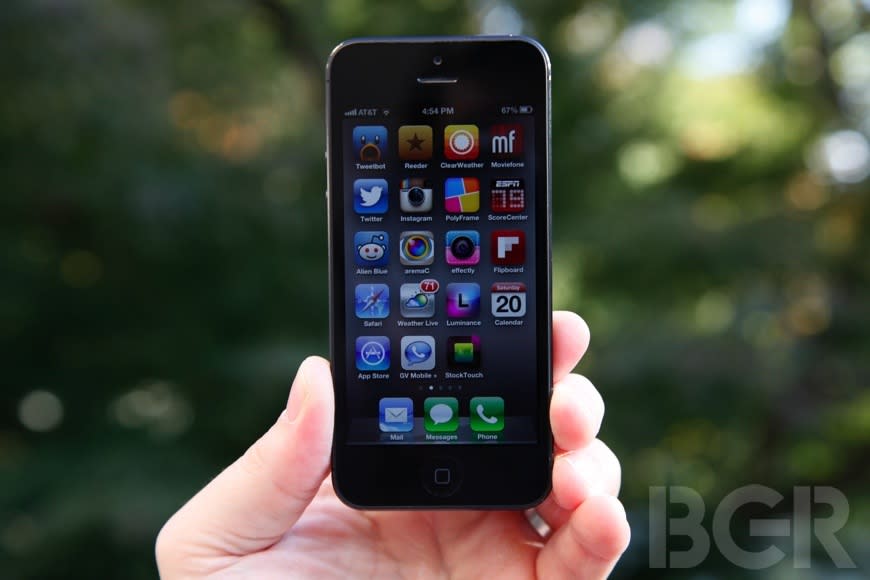iPhone 5 helped Apple capture majority of U.S. smartphone market for the first time ever
Apple’s (AAPL) smartphone market share has surpassed 50% in the U.S. for the first time ever, according to Kantar Worldpanel. The launch of the iPhone 5 boosted iOS sales over a 12 week period ending on November 25th, giving iOS a 53.3% share of the market. During the same period, Android sales were said to have declined 10.9 percentage points to 41.9%. The research firm found that consumers have continued to shun Microsoft’s (MSFT) Windows Phone platform, which totaled a mere 2.7% of smartphone sales in the November period.
[More from BGR: Android squashes iPhone 5 in latest Consumer Reports ratings: iPhone ranked lowest among top phones]
“The iPhone 5 has been successful this period however we also see that Apple’s older models – the iPhone 4S and 4 have also contributed to the growing share of iOS,” Kantar Worldpanel ComTech analyst Mary-Ann Parlato said. “This is particularly the case for first-time smartphone iPhone buyers where we see the older models still selling well amongst this group.”
[More from BGR: Smooth sailing is over for Apple]
Not only did the iPhone 5 help Apple’s market share, it also boosted AT&T (T). The company was found to be the top-selling smartphone carrier with 35.4% of all sales in the past 12 weeks, compared to 31.9% and 14.5% shares from Verizon (VZ) and Sprint (S), respectively. Smartphone sales on Sprint were said to be down 5% year-over-year.
Of those who purchased an iPhone in the timeframe covered in Kantar’s report, 27% came from another smartphone OS while 34% upgraded from an older Apple model and 40% of buyers were new to smartphones entirely. In fact, first-time buyers helped iOS become the top-selling operating system on Verizon’s network, beating out Android for the first time ever.
The firm found that 44% of Verizon’s feature phone user base upgraded to an iPhone, compared to 38% of AT&T’s basic phone users. The company found more success from customers with older models, however, with 51.7% upgrading to a newer iPhone, compared to 15% on Verizon.
This article was originally published by BGR

